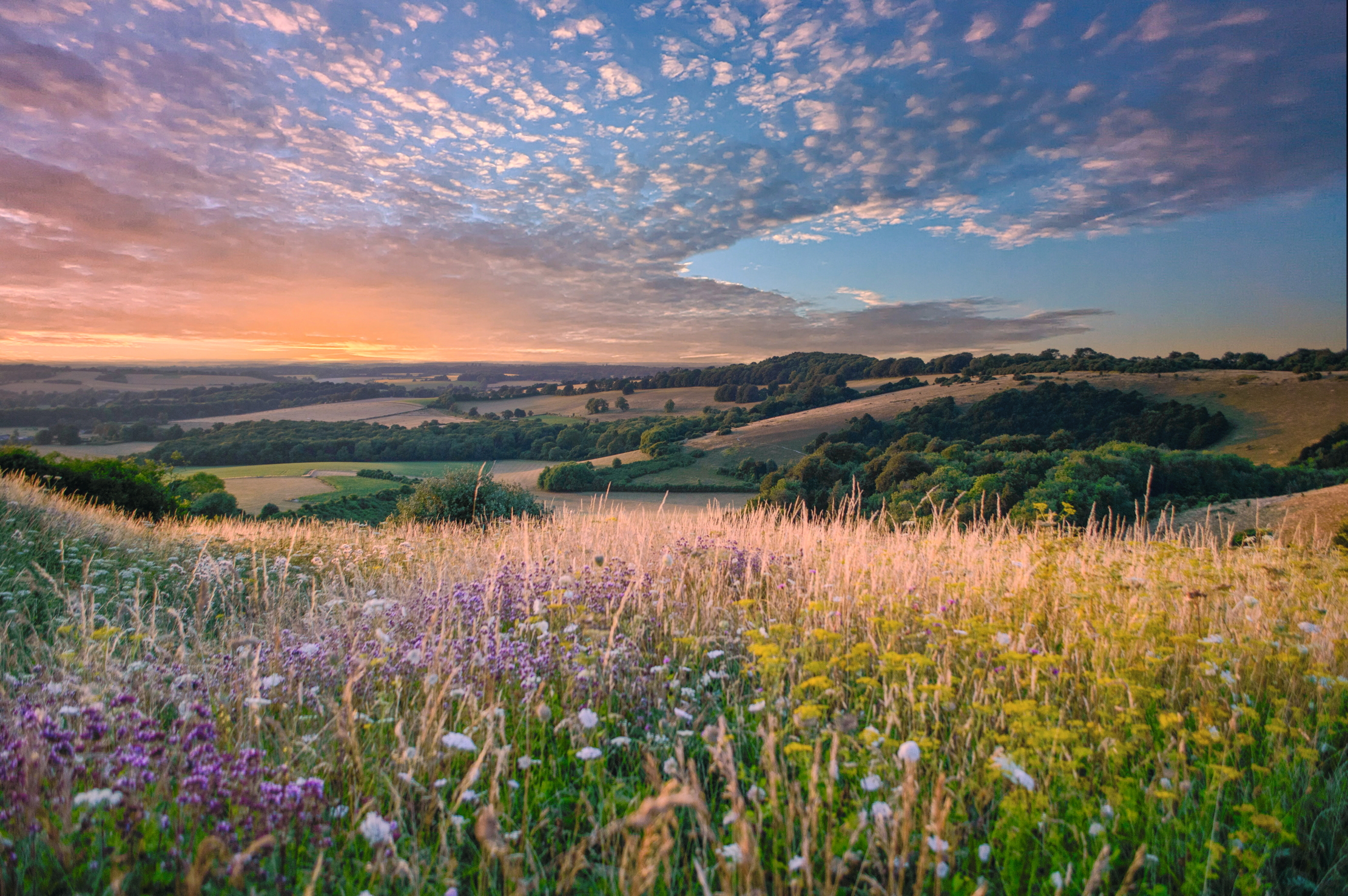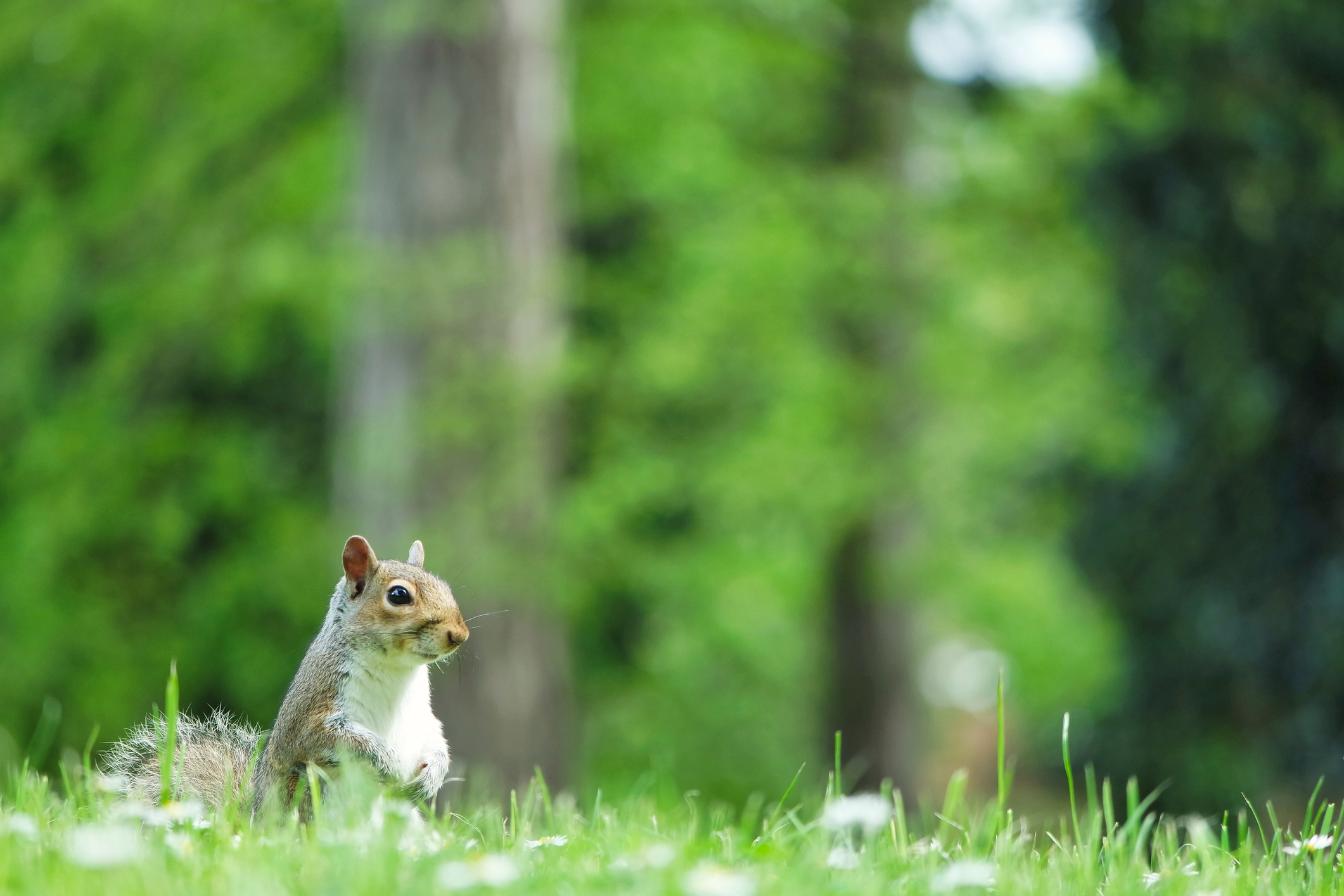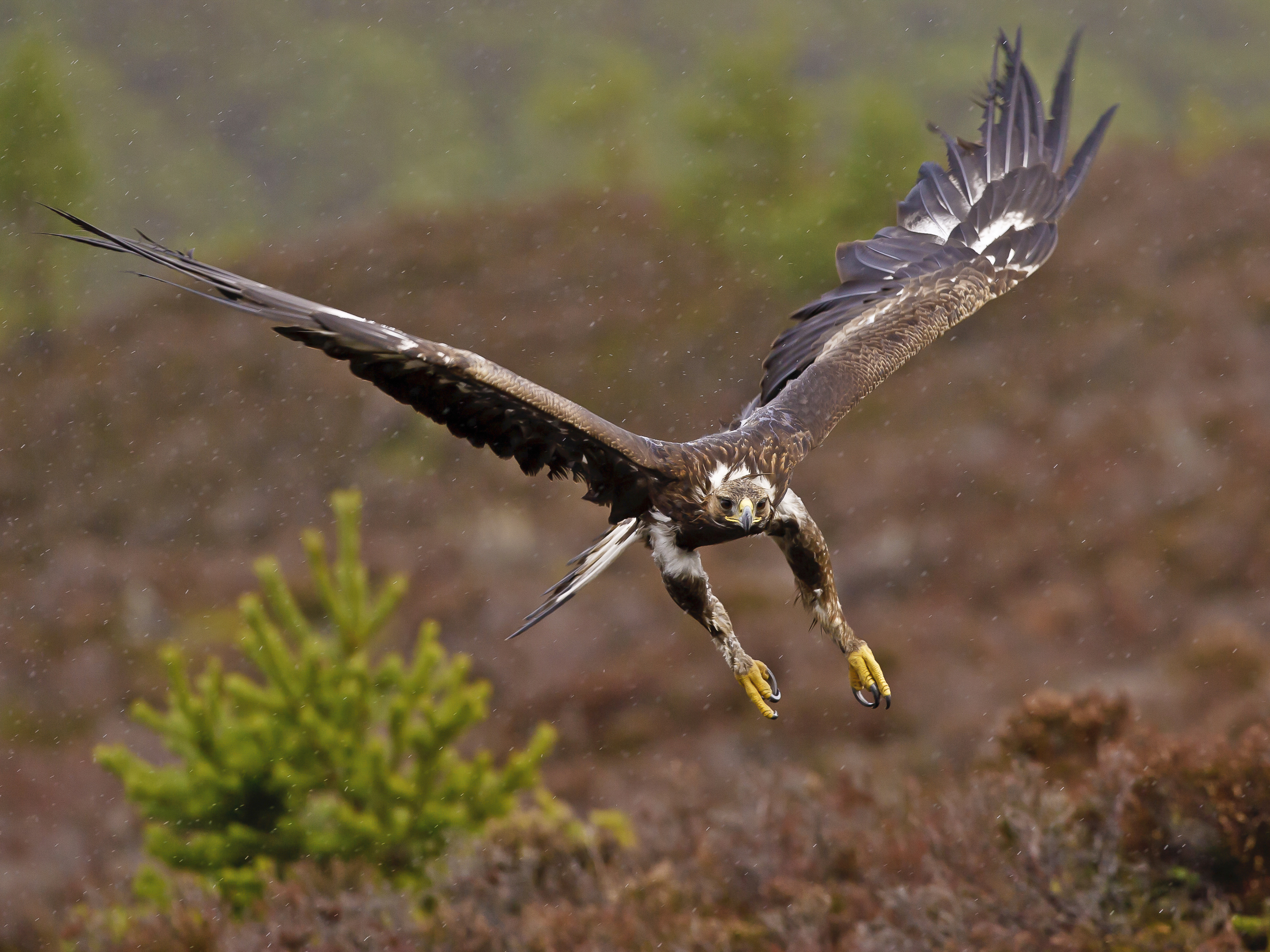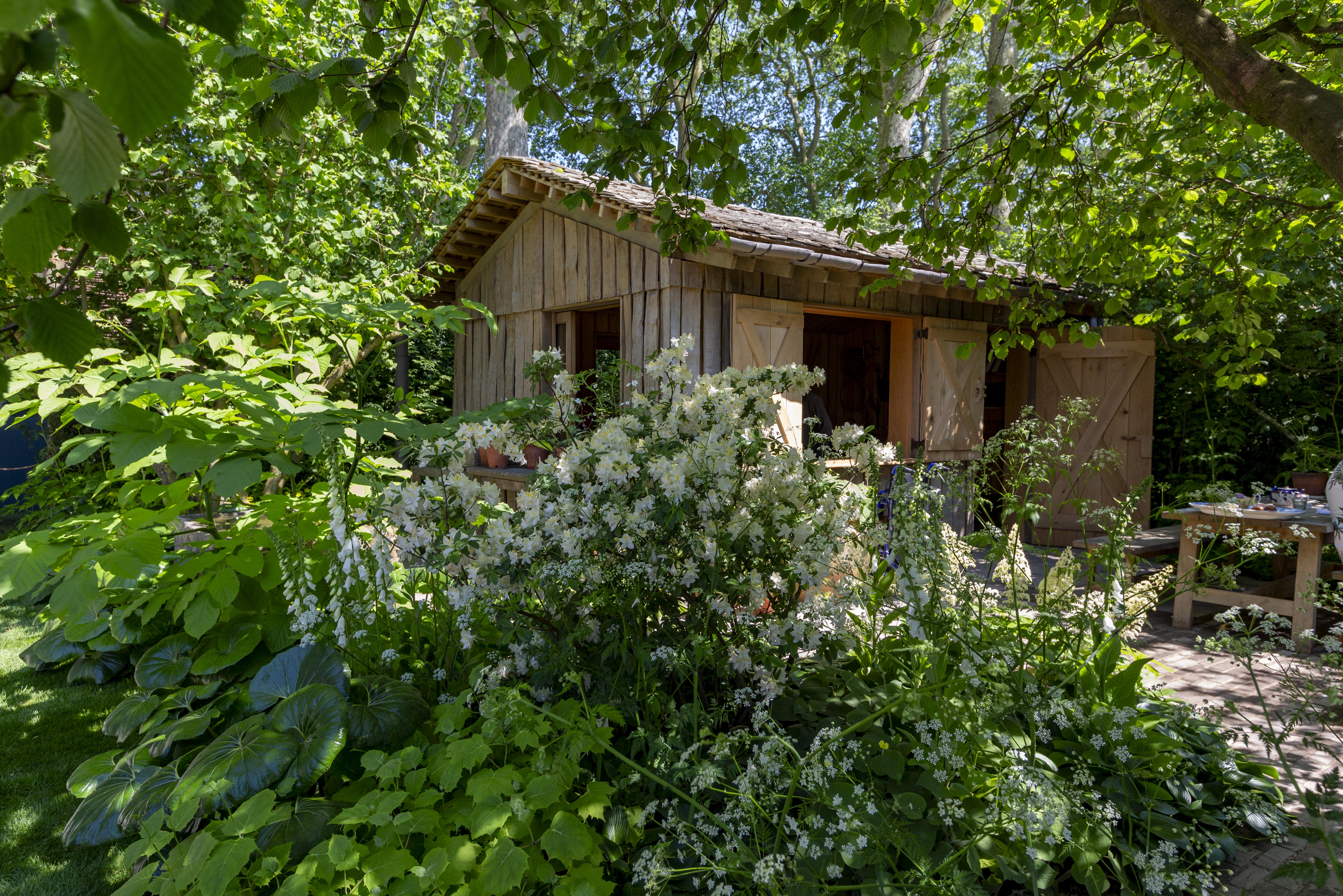John Lewis-Stempel: 'Rewilding is a poor, pathetic box of tools for fixing the state of nature'
Turning the countryside into an eco-Disneyland ignores plenty of problems — most notably, where is our food going to come from?


A wolf in the Highlands? Or perhaps some beavers in the brook? A lynx in the scrub? Rewilding Britain from the top down with charismatic wild animals from the past is unquestionably the conservation concept of our days. The allure, in a nation consistently described as ‘Nature depleted’, is easy to see.
I mean, really, when going for a walk in the dead, silent prairie fields of arable England, we struggle to find any Nature of note. Wouldn’t a slinky lynx liven things up and be a thrill? On that same walkabout, I’m tempted to throw up my hands and despair. We humans have so damaged the natural world that, seemingly, only by withdrawing and letting Nature self-rule can its future — and our own — be assured.
Or, in other words, adopt the philosophy of rewilding, as proposed by the movement’s founders, the American academics Michael Soulé and Reed Noss. Follow their ‘three Cs’ of core reserves, migratory corridors and carnivores. The ideology’s less glamorous cousin, ‘wilding’, means allowing the flora and fauna in a specific plot to multiply uncultivated, either as natives or escapees.
Either way, it’s self-regulatory Nature. Human hands off. (Re)wilding is one of the great divisions of our time, the Brexit of countryside and conservation, where everyone is required to declare their skin in the game. Me? I accuse rewilding thus: when the romantic wrapping paper is taken off, rewilding is a poor, pathetic box of tools for fixing the state of Nature.
As for ameliorating the human condition… humans are a problem for rewilding. It does not like us. Rewilding promotes ecosystem recovery in which Man is separate from Nature, not part of it. A Nature versus human binary, whereby the human role in the environment is preferably non-interventionist, leaving us as passive, gawping observers. Extra to Nature. Homo touristicus.
'The desire of rewilding, whether it acknowledges it or not, is the reconstruction of wilderness before pesky people ruined things'
The desire of rewilding, whether it acknowledges it or not, is the reconstruction of wilderness before pesky people ruined things. Look at Britain’s most famous rewilding experiment, the Knepp estate in West Sussex. I take my hat off to Charlie Burrell and Isabella Tree’s commitment to Nature, but Knepp is a self-conscious attempt to re-create a prepeople landscape. A Pleistocene theme-park.
The inconvenient truth for rewilding is that we live in Britain in 2024, with a population of 60 million-plus and a land transformed by 6,000 years of Farming for Food. Ah, the ‘F’ words. If large tracts of Britain are abstracted from farmland for primordial rewilding, where does our food come from? Intensifying agriculture on the remainder, with all the Nature-killing livestock exploitation that entails? Or ship the food in from abroad, with the greenhouse-gas emissions that result?
Exquisite houses, the beauty of Nature, and how to get the most from your life, straight to your inbox.
Of course, there is the tech ‘ecomodernist’ solution favoured by arch rewilder George Monbiot, where we become ‘farmfree’ and our fodder is grown in factory vats. This Brave New World is already being constructed in the Netherlands’s ‘Food Valley’ by a host of ‘innovative’ companies or, if you are cynical, the multinational corps that would come to control all food production so national food security becomes but a dream.
Of all us humans, farmers are rewilding’s biggest bugbear. How could we not be? Rewilding wants us gone because we have no part in a reconstructed preagricultural, self-regulating ‘wild’ landscape, financed by carbon credits, biodiversity credits, nutrients offsets and other ‘public goods’ subsidies. That is, the taxpayer’s money. Why bother farming, producing food, if there is greater income from taking the wild green pound? Plus, of course, the income from the coach loads of Homo touristicus to your eco-Disneyland.
Rewilding’s repercussions go beyond Nature. It poses questions about humans in the landscape. Do you want a ‘farm-free’ rewilded countryside as a tourist spectacle or a working countryside with farmers? Humans matter, don’t they?
'These human-created habitats are no less Nature-rich than the pre-agriculture landscape of woodland and glade they replaced'
‘F’ for Farming and Food, but also, funnily, for rewilding’s great Fail. Rewilding entails more than the removal of farmers, it entails the eradication of their cultural artefact: the farmed landscape. Obviously it does, if the ultimate goal is ‘self-regulating’ primordial wildwood. You will see the problem immediately: 6,000 years of farming in Britain have created distinct agricultural ecologies, from hay meadows to poppy-strewn cornfields and all with dependent species: meadow pipit, corn marigold.
These human-created habitats are no less Nature-rich than the pre-agriculture landscape of woodland and glade they replaced. Indeed, the sheep-nibbled chalk grassland of the Downs is likely as botanically rich as anything you will find on earth. Well done the farmers of yore! All of the above agricultural habitats require management. Farming, in a word. All of the above farmland ecologies are becoming lost due to industrialised, chemically addicted food production.
What does rewilding offer in answer? Their replacement by a mythical, Stone Age duoculture of trees and glades, essentially the extinction of these traditional agricultural habitats. If it weren’t tragic, it would be funny. Lovely rewilding requires, exactly as despicable Big Ag does, the farewell of the fauna and flora of farmland. You try growing cornflowers and corn marigolds in boar-running scrub.
Rewilding, if adopted at scale, would actually reduce the variety of Britain’s habitats. Then we have the rewilding fixation with charismatic apex predators from yesteryear. If you happen to be a sheep farmer (guilty, m’lud), rewilding is an ideological eviction notice, for the hills must be given over to the wolf, that most lusted-for reintroduction and a noted, fabled sheep-killer.
Get rid of the sheep, turn shepherds into tourist guides for the ever-expanding Great British Wildland Theme Park and the real countryside dies a little more. Rewilding is not the solution to Nature restoration or the society of the countryside: it’s a problem. And then, so is that minor matter of where your next meal is coming from.
John Lewis-Stempel is a farmer and writer from Herefordshire

Credit: Getty Images/500px
Patrick Galbraith: We are a brilliant and terrible species who messed it up a long time ago — and that means we have to do things we don't want to
Our columnist laments the painful decisions on culling wild animals which he argues have to be taken if we're to

'What else can you do but say "it's completely disgusting"?': Britain's worst new buildings, with Charlie Baker and the Carbuncle Cup
The Carbuncle Cup returns after a six-year hiatus. Competition judge and magazine editor Charlie Baker speaks to James Fisher about

Golden times for golden eagles as Britain's most majestic bird of prey hits 300-year high
Conservation efforts to help golden eagles are paying off, reports Annunciata Elwes.

Alan Titchmarsh on Chelsea 2024: 'We need controversy to make us think... Just don’t expect me to regard slugs and snails as my friend'
Alan Titchmarsh looks ahead to the 'matchless spectacle' of the 2024 Chelsea Flower Show, the 'Paris catwalk of the British
